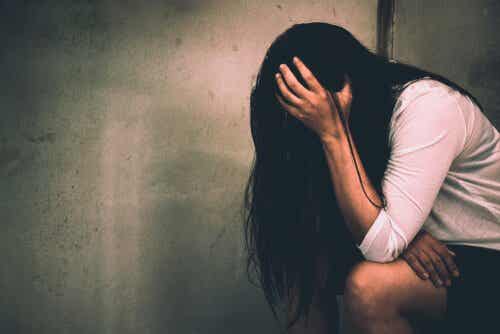For a large part of society, it is difficult to understand and, therefore, to help victims of sexual violence.

Last update: 07 September, 2020
Recent rape cases in Pamplona (the ruling raised a wave of indignation expressed by the #yositecreo movement) or in Ireland (the accused was found not guilty because the victim was wearing a lace thong) highlighted a problem crucial. For a large part of society, it is difficult to understand and, therefore, helping victims of sexual violence.
The victim is sometimes blamed and his attempt to overcome the trauma suffered and recover his life ends up questioning his version of events.
Being raped is trauma with long-term consequences. For this reason it is important to understand which aspects of the psyche can be damaged, in order to help victims of sexual violence to recover balance in the best way.
One in three women can experience abuse and violence in the course of her life. This is an abominable violation of Human Rights, yet it continues to be a largely invisible and underestimated pandemic of our time.
-Nicole Kidman-
What factors do you know to help victims of sexual violence?
In primo luogo, it is important to work on an aspect that has a decisive influence on psychological malaise: the self-blame of victims of sexual assault.
After suffering the trauma, in fact, it is common for the victim to formulate negative judgments about himself, favoring the onset of post-traumatic stress disorders, depression and general malaise.
The woman who has been raped is often forced to repeatedly answer questions like "did you try to put up physical resistance?", "did you deny it directly?". This helps to root the idea of guilt in the victim.
No is no. And if she doesn't say yes, it's still no. If she was wearing a skirt and wearing makeup, it's still not. And if she tries to take back her life, despite her fear, it continues to be a no. And if someone tries to blame her, the answer is no ”.
–The blonde neighbor– Twitter
It is not only the self-judgment of those who have suffered the attack that has an impact. The social support he can count on is also crucial. It is not just about giving support, the woman must perceive it in order to recover her well-being.
Finally, coping and adaptive emotional regulation strategies are very useful.
How to work on these aspects?
It is important to work through cognitive restructuring on the beliefs that victims of sexual violence create about themselves and the sense of guilt. In this sense, it is necessary to change the idea, which sometimes arises, of having deserved what has happened. It is not difficult to imagine, in the light of many recent cases, that this is work to be done on a social level as well.
“We have to take a stand. Silence helps the oppressor, never the victim ”.
-Elie Wiesel-
Unfortunately, these ideas are rooted in many of us. As for coping strategies, victims can set in motion problem-centered strategies; in other contexts they are adaptive, but in this case those that focus on emotions are more suitable, since we are faced with events beyond the control of the person.
Finally, it is important to say something about the support of society and how it is perceived by the victim of sexual violence. In some cases, when the person who has lived through an experience of this type is close to us, we would like to help him, but we do not know how. This can lead us to be present, but not in the way the person needs.
In this sense, it is important to remember that sometimes the best way to help victims of sexual violence is to let a professional (psychologist or psychiatrist) do their job. This does not mean that we must not offer our support, but that we must be careful to give it in the most appropriate way.
Images courtesy of Kevin Laminto and Chau Luong


























